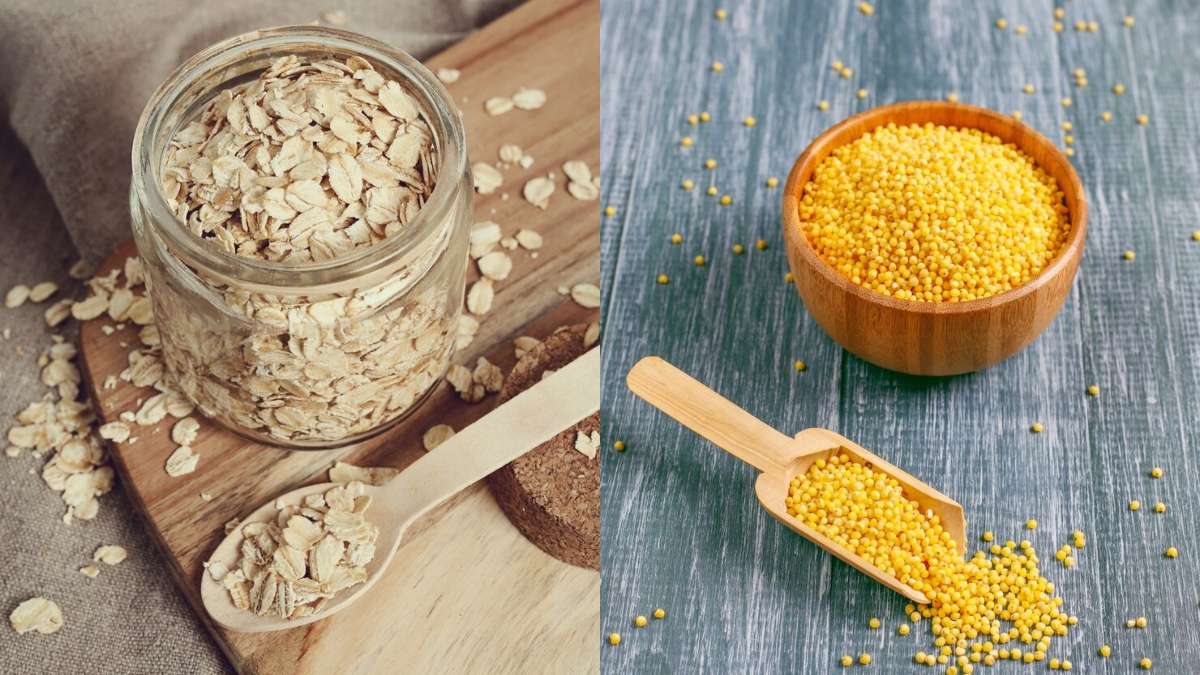Oats Vs Millets: Which is a nutritious choice?
Both oats and millets are nutritious choices that offer a range of health benefits. Oats are a good source of fibre, protein, and antioxidants, while millets are rich in minerals and have anti-inflammatory properties.

In today’s health-conscious society, there is an increasing emphasis on choosing healthier and more nutritious food options. With the rise of various fad diets and superfoods, it can be overwhelming to determine which foods are truly beneficial for our bodies. One such comparison that is often made is between oats and millet. Both are popular choices among health enthusiasts, but which one is truly the more nutritious option? In this article, we will explore the nutritional profiles of oats and millets to determine which one is a better choice for overall health.
Nutritious Factors of Oats and Millets:
Firstly, let’s take a closer look at oats. Oats are a whole grain that is known for its high fibre content and low glycemic index. This means that they are digested slowly, providing a sustained release of energy and keeping blood sugar levels stable. Oats are also a good source of vitamins and minerals such as iron, zinc, magnesium, and B vitamins. They are also rich in antioxidants, which help protect the body against free radical damage and reduce the risk of chronic diseases.
On the other hand, millet is a group of small-seeded grains that have been consumed for thousands of years in various cultures around the world. They are gluten-free and considered to be a good source of plant-based protein. Millets also have a low glycemic index, making them a suitable option for people with diabetes or those looking to manage their blood sugar levels. Additionally, millets contain essential minerals like calcium, iron, and phosphorus, making them a great choice for maintaining bone health.
When it comes to their nutritional profiles, both oats and millets have their unique strengths. While oats are higher in protein and antioxidants, millets have a higher mineral content. However, what sets them apart is their composition of carbohydrates. Oats have a higher percentage of complex carbohydrates that provide sustained energy throughout the day, whereas millets are lower in carbohydrates, making them a better option for those looking to reduce their carb intake.
Health Benefits of Oats and Millets:
Another factor to consider is the health benefits of oats and millet. Oats have been linked to a reduced risk of heart disease due to their high fibre content, which helps lower cholesterol levels. They also contain beta-glucans, a type of soluble fibre that can improve insulin sensitivity and lower blood sugar levels. Millets, on the other hand, have been shown to have anti-inflammatory properties and can aid in weight loss due to their low glycemic index. They are also a good source of antioxidants and can help improve digestion.
In terms of versatility, both oats and millets can be used in a variety of dishes. Oats are most commonly consumed as oatmeal or overnight oats, but they can also be added to smoothies, baked goods, and even savoury dishes like veggie burgers. Millets, on the other hand, are often used as a substitute for rice in dishes like pilafs and as a gluten-free alternative for flour in baking. Both oats and millet are also easy to prepare and make a great addition to any meal.
So which one is the better choice?
The truth is, that both oats and millets have their own unique set of nutrients and health benefits. It ultimately depends on an individual’s dietary needs and preferences. For those looking for sustained energy and a good dose of antioxidants, oats may be the better option. However, for those looking for a low-carb alternative with anti-inflammatory properties, millets may be the way to go.




